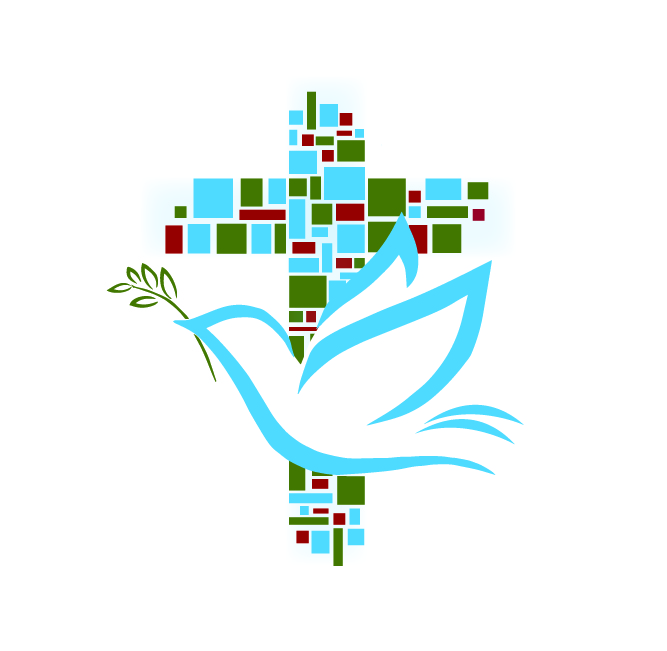Dear Members & Friends of Peace Lutheran Church:
This past Friday, September 11, 2020, was the 19th anniversary of that terrible September 11th of 2001 when terrorists seized control of four passenger jet airplanes and crashed them into the twin towers in New York City and the Pentagon. And were it not for the selfless courage of passengers on Flight 93 they would have crashed another plane into the Capital Building in Washington D.C.
I’m sure that all of us over the age of 15 can remember where we were and what we were doing when we heard the news. I myself was preparing to teach an 8th grade confirmation class in the Lutheran Day School of St. Mark Lutheran Church in North Tonawanda, New York. When we heard the news, the principal and I assembled the 7th and 8th graders in a room with a television and spent the next hour watching the horror unfold. That Tuesday at noon my Rotary Club was scheduled to meet, and so I went to the meeting. I volunteered to give the “invocation” that day and began it by reading Psalm 46:
God is our refuge and strength, a very present help in trouble.
Therefore we will not fear though the earth gives way,
though the mountains be moved into the heart of the sea,
though its waters roar and foam,
though the mountains tremble at its swelling.
There is a river whose streams make glad the city of God,
the holy habitation of the Most High.
God is in the midst of her; she shall not be moved;
God will help her when morning dawns.
The nations rage, the kingdoms totter; he utters his voice, the earth melts.
The Lord of hosts is with us; the God of Jacob is our fortress.
Come, behold the works of the Lord, how he has brought desolations on the earth.
He makes wars cease to the end of the earth;
he breaks the bow and shatters the spear; he burns the chariots with fire.
“Be still, and know that I am God.
I will be exalted among the nations,
I will be exalted in the earth!”
The Lord of hosts is with us; the God of Jacob is our fortress.
Although we have not been facing terrorist attacks this September, we have been facing major tragedies in our state, our country, and in the world. Covid-19 has stuck so many lives and killed (as of this writing) nearly 200,000 Americans — more than have died in all the wars our nation has ever fought. The economic upheaval caused by the virus has left millions unemployed and scores of businesses closing for good. For us in Oregon this past week has been especially tragic as forest fires, fanned by the high winds of last Monday and Tuesday, have swept across our state. I read that over the past few years in a “normal” fire season Oregon will have up to 500,000 acres of fires. In the past week alone this year fires are burning in 1,000,000 acres.
What can we say in response to such tragedies…human-caused tragedies like 9-11 or natural tragedies like these terrible fires? On September 11, 2001 I read Psalm 46 as the “invocation” to my Rotary Club meeting. And I cannot think of a better word from God for us to read and pray during this time of these tragic fires and the other upheavals of this year.
We don’t know exactly what was going on in Israel when the unnamed Psalm writer penned these words, but from the words in the Psalm there must have been something terrible happening in Israel. Verse 2 indicates that there might have been a major earthquake: “Therefore we will not fear though the earth gives way, though the mountains be moved into the heart of the sea.” Verse 3 indicates that may be the earthquake caused a tsunami: “…though its waters roar and foam, though the mountains tremble at its swelling.” On top of that, verse 6 indicates that perhaps Israel was about to be invaded by a foreign power: “The nations rage, the kingdoms totter.”
But then the Psalmist expresses his confidence in God. Twice in this Psalm, in the middle of it and in the closing verse of the Psalm, he writes: The Lord of hosts is with us; the God of Jacob is our fortress.
Are you looking for some comfort, some hope, some spiritual reassurance during these times of pandemic and economic upheaval and raging fires? Then I would direct you to the same place this Psalmist looked for comfort, hope, and spiritual reassurance: To our God! The Lord of hosts is with us; the God of Jacob is our fortress.
When the angel told Joseph, Mary’s betrothed, to take her as his wife, St. Matthew tells us that all this was done in fulfillment of the ancient prophecy that,“The virgin shall conceive and bear a son, and they shall call his name Immanuel.” (Matt 2:23). “Immanuel” is a Hebrew word that means “God is with us”. That was at the beginning of the Gospel According to St. Matthew. And the in closing words of that same Gospel Jesus says to His disciples — and to us! — And behold, I am with you always, to the end of the age (Matt 28:20).
Are you frightened…unsure…wondering what will happen next? Of course, you are! So am I! And at such a time, there is no better place to turn than to the reassuring words of Psalm 46…repeated twice so we will note and remember them: The Lord of hosts is with us; the God of Jacob is our fortress.
We Pray: O Lord of hosts, remind us and assure us that You are with us; O God of Jacob, remind us and assure us that You are our fortress; O Lord Jesus Christ, remind us and assure us that You are with us always, to the end of the age. In Your name we pray. Amen.
The Rev. Paul Doellinger, Emeritus
9/14/2020





















